#some creative writing
Explore tagged Tumblr posts
Text
sometimes you need dialogue tags and don't want to use the same four


#they're like synonyms and adjacent words and some of them only loosely fall into the category shown i just needed to stick them somewhere#fanfic writing#writing#creative writing#writers on tumblr#writing dialogue#writing reference#writing tips#synonyms#writing resources#for future reference
153K notes
·
View notes
Text
sometimes a theme recurs in your work without your permission. and sometimes it reaches a threshold where you're like. well now i think this is saying something about me against my will. don't know what though
#creative writing#shitpost#sorry just wrote a third piece with the same underlying idea/premise#which i didn't do on purpose#and now i'm like. well fuck. what's this mean about me?#now i gotta do some self reflection about that
54K notes
·
View notes
Text
Silly drunk dialogue
Can also be under the influence of other stuff.
"Oh, look at the stars! Ursa Major… so beautiful!" "We're inside. Those are just ceiling lights."
"Please don't leave me!" "I'm just going to the toilette." "Can I come with you?"
"My arm is floppy. I'm like a puppet."
"Can you be my girlfriend?" "I already am." "Oh, lucky me!"
"Let’s go play baseball!" "Your shoulder is dislocated, maybe not right now."
"You look almost as pretty as this moon." "That's a street lamp." "And you're almost as pretty."
"Have you ever thought about penguins? I think we should think more about penguins."
"You have a stupid face and it's my favourite one to stare at."
"I will definitely remember this tomorrow! How could I ever forget?" *doesn't remember anything in the morning*
"Oh, I think we haven't met before." "We have been in a relationship for five years now."
"You should go, otherwise I'm doing something stupid. Like kissing you or falling asleep on the bathroom floor."
"Let's get you home." "Oh, mine or yours?" "Ours." "Oh, wow!"
"I'm totally, absolutely, not at all drunk at all. Like... at all."
"Why are you all laughing? That is not very nice. I haven't even told my joke yet."
"How many drinks did you have?" "Yes, yes I am."
"You are too beautiful for me." *starts crying*
"Why are you undressing?" "Because it's hot! And I'm hot!"
*starts singing a remix of all their favourite songs*
*then starts crying, because their own voice is too beautiful*
#some old some new#writeblr#writing inspiration#writing ideas#creative writing#writers on tumblr#writing prompt#silly drunk dialogue#drunk prompts
8K notes
·
View notes
Text
i love when words fit right. seize was always supposed to be that word, and so was jester. tuesday isn't quite right but thursday should be thursday, that's a good word for it. daisy has the perfect shape to it, almost like you're laughing when you say it; and tulip is correct most of the time. while keynote is fun to say, it's super wrong - i think they have to change the label for that one. but fox is spot-on.
most words are just, like, good enough, even if what they are describing is lovely. the night sky is a fine term for it but it isn't perfect the way november is the correct term for that month.
it's not just in english because in spanish the phrase eso si que es is correct, it should be that. sometimes other languages are also better than the english words, like how blue is sloped too far downwards but azul is perfect and hangs in the air like glitter. while butterfly is sweet, i think probably papillion is more correct, although for some butterflies féileacán is much better. year is fine but bliain is better. sometimes multiple languages got it right though, like how jueves and Πέμπτη are also the right names for thursday. maybe we as a species are just really good at naming thursdays.
and if we were really bored and had a moment and a picnic to split we could all sit down for a moment and sort out all the words that exist and find all the perfect words in every language. i would show you that while i like the word tree (it makes you smile to say it), i think arbor is correct. you could teach me from your language what words fit the right way, and that would be very exciting (exciting is not correct, it's just fine).
i think probably this is what was happening at the tower of babel, before the languages all got shifted across the world and smudged by the hand of god. by the way, hand isn't quite right, but i do like that the word god is only 3 letters, and that it is shaped like it is reflecting into itself, and that it kind of makes your mouth move into an echoing chapel when you cluck it. but the word god could also fit really well with a coathanger, and i can't explain that. i think donut has (weirdly) the same shape as a toothbrush, but we really got bagel right and i am really grateful for that.
grateful is close, but not like thunder. hopefully one day i am going to figure out how to shape the way i love my friends into a little ceramic (ceramic is very good, almost perfect) pot and when they hold it they can feel the weight of my care for them. they can put a plant in there. maybe a daisy.
#warm up#writeblr.#i am not going to personally comment on the pineapple debate#some things are too big for me.#maybe we could have everything on earth choose their own names.#wouldn't that be fun#it is a creative writing exercise. okay. ily#''why only these languages?'' ..... bc i dont know every language#sorry :(#PLEASE leave me comments about what words u think are correct. i love learning them#btw! this isn't saying these are the most BEAUTIFUL words for it... just the words that are the most CORRECT#like i quite like the word ''keynote'' as mentioned. it's got a lot of fun sounds in it.#but it is not CORRECT.#''gloaming''' is interesting and fun and poetic but it is NOT correct . evening is MORE correct#but less beautiful.#does that make sense?
12K notes
·
View notes
Text
🌙💙🤍
Unique English words for writing 2:
Opiate (v.) - To dull pain the way someone would with opioids/opium
Ecdysis (n.) - Shedding of the skin in reptiles, shedding of outer cuticle/exoskeleton in arthropods and insects
Clowder (n.) - A group of cats
Polypharmacy (n.) - Simultaneous use of multiple drugs to treat one or multiple conditions.
Sempiternal (adj.) - Everlasting, unchanging
Dwale (n.) - Belladonna / nightshade
Fleet (adj.) - (Of water) to be shallow
Opulence (n.) - A lot of wealth, luxuriousness
Sibilant (adj.) - Making a hissing sound
Sozzled (adj.) - To be very drunk
Incendiary (adj.) - Designed to create conflict
Chatoyant (adj.) - Having a changing luster/shine
Cessation (n.) - The process/fact of coming to an end or being brought to an end
Eventide (n.) - The end of the day, eve
Luculent (adj.) - Brightly shimmering
#for some words there are tons of meanings so I can't add them all but yk#🌙💙🤍#yyprompts#dialogue prompt#writeblr#writing ideas#writing reference#writing#writing resources#writing research#writing related#on writing#creative writing#writerscommunity#writing advice#writing tips#rare words
514 notes
·
View notes
Text
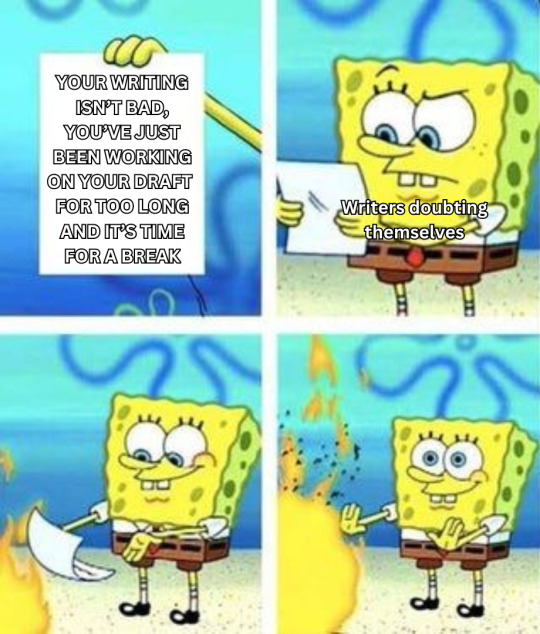
#just in case y'all needed a reminder <3#fiction#this is a reminder for myself too#take breaks and drink some water too#writing#creative writing#author#writerblr#writing community#my writing#writer#writers of tumblr#indie author#writing memes#novel writing#am writing#book writing#fantasy writing#fiction writing#story writing#writing advice#writing blog#writing fiction#writing inspiration#writing meme#writing mood#writing on tumblr#writing problems#writing progress#writing stuff
5K notes
·
View notes
Text
Fantasy Guide to the Army
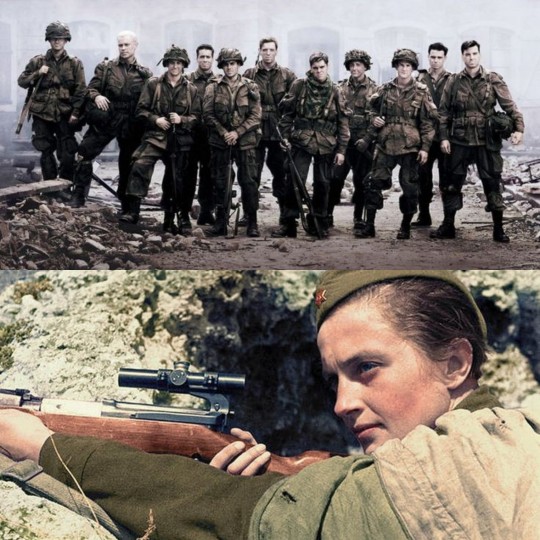
I have been asked to do this post for quite a long while and I finally got around to it. This guide is a basic guide, you may need to do further research into specific armies across the world. Armies are a necessary part to any world building, so what do we need to know about them?
(PS I had planned to include air force and navy but I am just one person and I cut myself, and the read more link, some slack)
Ranks
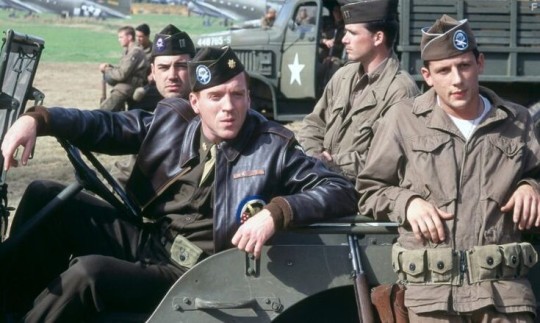
Field Marshal (FM) The Field Marshal is the highest rank of within the Army. The rank of Field Marshal was often granted in times of war (a general must have committed an act of valour, i.e. a victory). The rank can sometimes be used as a divisional command rank or brigade command. The UK, Austria-Hungary, Afghanistan, Germany, India, and Pakistan use the rank as a reward for achievement. Spain and Mexico use it for divisional command while countries such as Portugal, France and Brazil for use it for brigade command. The rank of Field Marshal is a "five star" position. The rank does not exist in the US army. They are addressed as Field Marshal Surname. Their insignia is two crossed batons surrounded by yellow leaves set under a crown.
General (Gen.) A General is the commanding officer of an army or army corps. It is currently the highest rank granted in most armies today, it is a 4 star position. A General is in charge of commanding large units, they are in charge of making strategic decisions for the army, oversee major military operations, manage the needs of the army. They are addressed as General Surname. Their insignia is four stars (US, France, Germany, Russia) and a sword and baton crossed under a crown and a star (UK). Lieutenant General (Lt.Gen) Lieutenant General commands an army corps or a division (tens of thousands of soldiers). They are also involved in strategic planning. They also hold positions within the Ministry of Defence/Equivalents. They would often serve as advisers to the government and aid Generals. It is a 3 star position and they addressed as Lieutenant General Surname. Their insignia is three stars (US, Germany, France, Russia) and a crossed sword and baton under a crown (UK)
Major General (Maj.Gen) Major General is a general officer in the army, responsible for leading and operational roles. They would command divisions of tens of thousands of soldiers. They support the officers above them, helping with strategy, executing the strategy, oversee the training of their units. They are addressed as Major General Surname. They are a 2 star position. Their insignia is a crossed sword and baton with a star (UK) and two stars (US, Germany, Russia, France). Brigadier General (Brig.Gen) Brigadier General is a one-star general officer in the army. They command brigades (3,000 to 5,000 soldiers), assisting Major Generals in tactical planning and coordination of operations. They are addressed as Brigadier General Surname. Their insignia is one star (Russia, Germany, US,), two silver stars (France) and s crown and three stars (for the UK, stars are known as pips). Colonel (Col) Colonels command brigades of about (3,000 to 5,000 soldiers), they are senior staff officers who both provide leadership to their units which are sometimes specialised agencies, such as task forces. Colonels are addressed as Colonel Surname. A silver eagle (US), a pair of diamond pips under a crown (UK), three silver pips upon shoulder braid with silver braid (Germany), three gold pips on a shoulder board with golden braid (France and Russia). Major (Maj) Majors command units of around 120 officers. They are in charge of the training and welfare of their soldiers, administrative duties within the barracks and within their unit. They are the primary staff officer in brigades. They assist superior officers in planning and executing missions and tactical plans. The Major is referred to as Major Surname. Their insignia is 2 gold stars on a shoulder board with golden braid (Russia, France) 2 silver pips on a shoulder board with silver braid (Germany), a crown (UK), a golden oak leaf (US)
Captain (Cpt) Captains lead companies usually around 50-200 soldiers. They are often the second officer in a company working alongside a superior officer. They are responsible for operations in the field such as ensuring equipment is kept up to date and in good condition, offering logistic support, and managing their troops. Captains are addressed as Captain Surname. Their insignia is two silver bars (US), three pips (UK), three silver pips on a shoulder board with silver braid (Germany), three golden pips on a shoulder board with gold braid (France, Russia) Lieutenant (Lt) Lieutenants command a platoon (about 30 odd soldiers). They are in charge of overseeing the training and discipline of their soldiers along with ensuring their welfare. They will participate in missions under the command of a superior. Lieutenants are addressed as Lieutenant Surname. Their insignia is two golden stars on a shoulder board with gold braid (Russia, France), two silver pips on a shoulder board with silver braid (Germany), two pips (UK), one silver bar (US) Second Lieutenant (2/Lt) The Second Lieutenant leads smaller units, working with enlisted soldiers. They are crucial in the training of soldiers, they maintaining personnel records and manage the resources needed for a mission or the units welfare. They would be addressed in conversation as Lieutenant but referred to as Second Lieutenant in dispatches and in correspondence. Their insignia is one gold bar (US), one pip (UK), one silver pip on a shoulder board with silver braid (Germany), one gold pip on a shoulder board with gold braid (Russia, France)
Enlisted Men
Warrant Officer 1st Class (1/WO)This is the most senior non-commissioned rank. They focus on discipline, prisoners, ammunition supplies and various technical and non-combatant services. In the UK, they often hold the rank of Regimental Sergeant Majors (RSMs) and are appointed by the Secretary of State Defence while in the US, the Secretary of the Army appoints them. They are addressed as Mr/Ms/Mrs Surname or Chief. Their insignia is one silver bar and a black square (US), the royal coat of arms (UK), four silver pips on a shoulder board with silver braid (Germany), three gold chevrons and a gold star (France), two gold stars on a shoulder board with golden braid (Russia) Warrant Officer 2nd Class (2/WO) The Warrant Officer Second Class would do similar jobs as the WO1, but they handle the below regimental section. Warrant Officer Class 1 (WO1). WO2s can be referred to as Company Sergeant Majors (CSMs) or Squadron Sergeant Majors (SSMs) (depending on their unit). They take roles within training, discipline and aiding the Warrant Officer Class 1 (WO1). Addressed as CSMs/SSMs and as Mr./Mrs/Ms. Their insignia is one gold star on a shoulder board with gold braid (Russia), Three golden chevrons (France), three silver pips on a shoulder board with silver braid (Germany), crown (UK), silver bar with two squares (US). Sergeant (Sgt)The Sergeant are responsible for the soldiers under their command. They oversee their team, acting as mentors and supervisors to their soldiers. Sergeants are over a squad of 10 soldiers. They are responsible them, from performance, prepare them for combat and their needs. They are addressed as Sergeant Surname. Their insignia is three chevrons (US, UK), two silver pips on a shoulder board with silver pips (Germany), two golden chevrons (France) and three golden chevrons (Russia). Corporal (Cpl)Corporals lead small squads of soldiers, no more than . Corporals are in charge of the training of their soldiers and ensuring that they are up to standard. They handle all the paperwork for their squad such as records. Corporals will accompany their soldiers on missions, leading patrols and overseeing their soldiers in the field. They are usually responsible for large pieces of equipment. They are addressed as Corporal Surname. Their insignia two chevrons (US, UK), one silver pips with shoulder board with a silver braid (Germany), two gold chevron (France, Russia). Lance Corporal (L.Cpl)Lance Corporals help Corporals lead their teams, acting as their second in command. They are in charge of disciplining, mentoring and leading their squads. They are also in charge of large weapons. They are addressed as Lance Corporal Surname. Their insignia one golden chevron (Russia, France), none/one silver pip (Germany), one chevron (UK) and one chevron with crossed rifles (US) Private (Pte)Privates are the lowest rank in the army. They will have just come out of training with the basic skills of a soldier. Privates are given tasks by superior officers, must obey the orders given and are usually given the more hands-on tasks, such as maintenance of weapons and their camp. They are addressed as Private Surname. Their insignia is one chevron/none (US), no insignia (UK, France, Russia, Germany).
Non-Commissioned Officers vs Commissioned Officers
You may have often heard the term "non-commissioned officer" if you have ever watched any war media. The difference is that Commissioned Officers receive their rank via a formal document signed by a high-ranking official, such as the monarch or a political leader. The Commissioned Officers are usually Lieutenants, Colonels, Generals, Captains, Majors. They are responsible for giving orders and making decisions. Non-Commissioned Officers are promoted from the enlisted ranks, gaining their promotion on skills alone. They are in charge of discipline, training and carrying out orders. They are usually ranked among Corporals and Sergeants.
Jobs within the Army

No army is just made up of officers and their soldiers. An army is like a town on the move, there are hundreds of different tasks that must be undertaken to ensure the army is fed, transported, kept in line and kept equipped.
Medic: Medics are the first responders for wounded soldiers, they administer first aid, medication and medical care to the soldiers in their unit. Medics are usually NCOs.
Chaplain: Is a soldier with some religious or spiritual calling that administers last rites, confession, spiritual guidance and solace for soldiers. They will see to soldiers of all creeds and faiths.
Artillery Crew: The Artillery Crew handle the maintenance and inventory of artillery weapons and related equipment. NCOs with training in the handling of artillery.
Military Police: The Military Police are force within the army that keep soldiers in line, maintain order and arrest any soldier caught doing a crime on the job. Always NCOs.
Intelligence: This is the information post, which involves fact gathering, recording and study of information needed by the army to mobilise.
Quartermaster: The quartermaster manages the distribution and gathering of all the things needed for the army from uniforms to equipment for the soldier's packs. Usually NCOs.
Mess Officer: The Mess Officer oversees the Mess Hall, managing the staff as they cook and prepare the army's meals. The Mess Officer would also be in charge of budgeting, inventory, health and safety and providing meals timely. Usually an officer, Captains and Lieutenants.
Adjutant: Is an officer who acts as an assistance to a superior officer taking on secretarial duties such as paperwork and arranging their diary. Usually a Captain or a Major.
Combat Engineer: The Combat Engineer is in charge of maintaining and building fortifications. NCOs with specialised skills in the field.
Logistics: Logistic Specialists handle the supplies, equipment and arranging transportation. NCOs.
Armourer: The armourer is in charge of weapons and ammunition. They handle any repairs needed and see to the safe storing of these valuable items. NCOs.
Communications Specialist: These Specialists handle communications, the communication equipment and its maintenance. NCOs usually with previous experience or training.
Mechanics: Mechanics are in charge of the maintenance of vehicles and machinery. They handle repairs, do check ups, offer support in the field and ensure everything is in good shape. NCOs with training and skills in the area.
Equipment
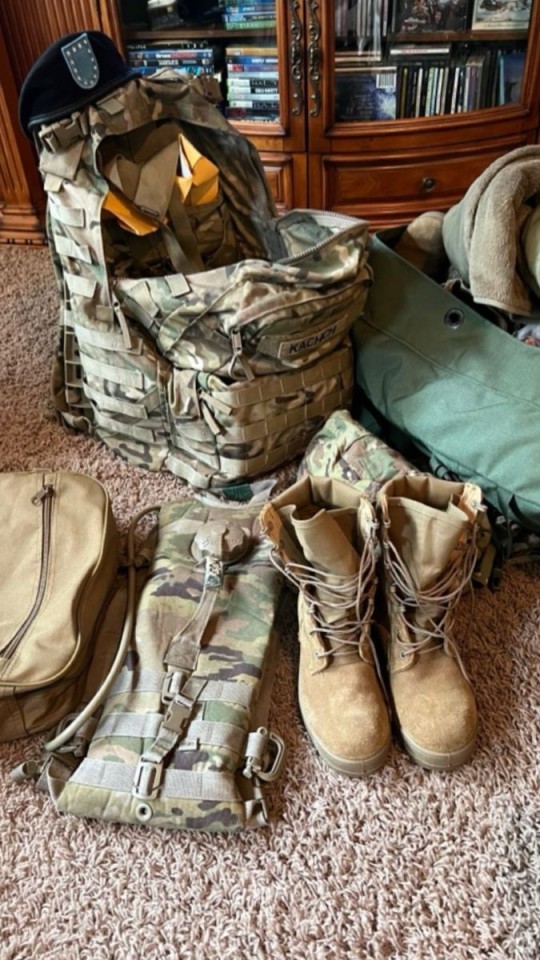
The soldiers will not be going into any situation without equipment - at least, not at first. Equipment is like gold dust in the field, especially if a unit is within enemy territory or the supply chain cannot be relied upon. Soldiers may often turn to thievery in order to resupply themselves with ammunition, weapons, supplies and even boots. In WWII, the newly formed company the Special Air Service - the SAS - actually raided their allies for supplies.
The soldier would carry essential supplies when they are first deployed. These would include (may vary):
Flasks/Canteen: Or some sort of drinking container. A soldier will need to hydrate if they don't wish to die-dydrate on a long march. They may also carry water purification chemicals such as iodine.
First Aid Kits: All soldiers will carry the basics of a first aid kit. This would include bandages, gauze, burn ointment, tourniquet, pain relief (not the good stuff), scissors and tweezers.
Knife: It is always handy to have something to cut things with.
Gun Cleaning Tools: Soldiers will have the equipment to care for their weapons. An uncared for weapon is an invitation for death.
Ammunition: A soldier would carry ammunition with them.
Entrenching Equipment: Something to dig with, usually a collapsible shovel.
Rations: Soldiers may often carry some sort of food with them, usually of the preserved kind.
Some form of shelter: Soldiers may carry something to shelter themselves such as a sleeping bag, a tent, a blanket.
Signal Mirror: Soldiers carry signal mirrors to send visual signals to communicate with others.
Toiletries: Basic hygiene items.
Weaponry
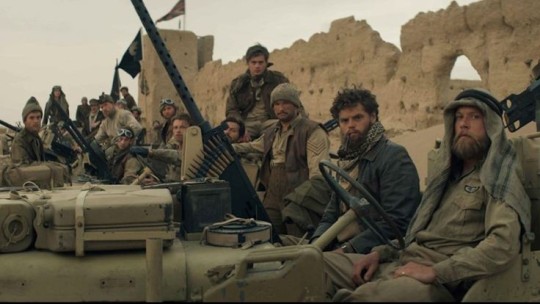
Soldiers will not only just need equipment to survive on the field. Soldiers will carry all sorts of weapons on them. It was up to the soldier to care for the weapon and ensure it is up to scratch. Ammunition, of course, doesn’t grow on trees and nor do weapons. Weapons and ammunition like supply I mentioned above could often be “liberated” from the enemy or even unwitting allies. Every soldier will carry:
A rifle: This is the long-range weapon carried by almost all soldiers. They will use this in combat, especially if fighting from a fixed position.
A handgun or a pistol: Most soldiers will carry a secondary gun. These guns are useful in tight spaces or close combat.
Bayonet: A knife or blade that is attached to the rifle. This allows a soldier to stab the enemy with their rifle.
Combat Knife: A knife used in combat.
Mortar: This is a short-barrelled artillery piece. It is used to fire shells at steep angles.
Hand Grenades: These are handheld explosives carried by soldiers. They have a delayed fuse, meaning that they are useful as both a long-range weapon and as a close-range weapon – one could leave one behind as a present. They are typically activated by pulling the pin, flinging it away from the body, toward the enemy and denoted.
Uniforms
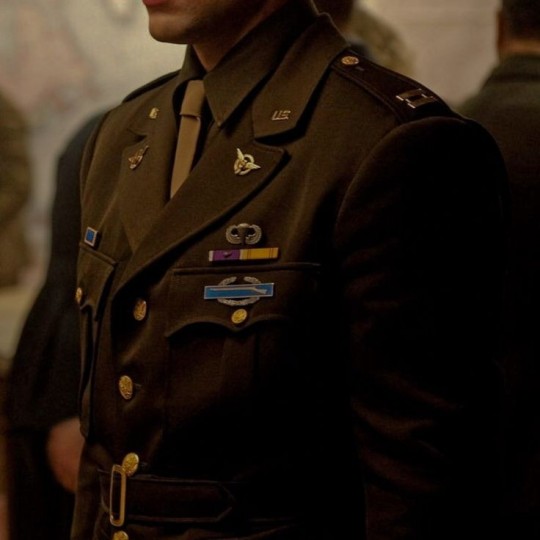
Above in rankings, we went through the insignia which is the symbols on one's uniform that denotes your rank and place in the hierarchy of things. Soldiers will be inspected every day to ensure their uniforms are up to standard and will face the wrath of superiors if their uniforms are unkempt and their appearance not up to the mark. Every private learns how to shine their own boots, sort out their own uniforms and are responsible for looking their best. There are different kinds of uniform for a soldier.
Casual Uniform: This uniform is comprised of a more casual uniform, made up of a tunic/shirt, trousers and boots. Certain units will wear caps and berets denoting their unit and rank as well. Combat Uniform: This is worn on the field. It will often reflect the climate the soldier is going into, so will be light and heavy depending on the weather. A soldier would wear a combat jacket, trousers, wear a helmet, wear their identification tags/dog tags. These would be in mute colours, usually khaki or camouflage. Service Dress Uniform: This is worn during official duties and formal events. It comprises of a dress shirt, tie, peaked cap/beret, creased trousers and a jacket with their insignia, unit symbols and medals. Dress Uniform: This is worn during very formal ceremonies. A formal jacket pinned with ribbons, embroidered insignia and the medals of their achievements and commendations, creased trousers, dress shirt and tie, polished shoes and a formal hat cap/beret.
Life of a soldier (On Base and in the Field)
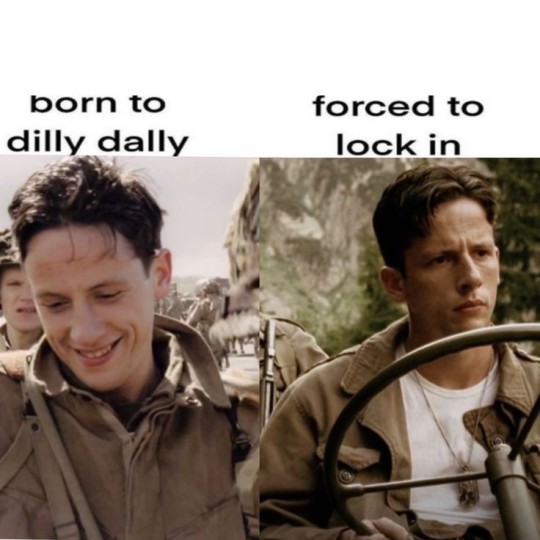
Soldiers on active duty will be expected to manage many tasks, not just firing at the enemy or storming enemy beaches. Soldiers are expected to fulfil maintenance work, defence, offence, administrative duties (if needed), engineering and communications.
On Base: A soldier’s day will be planned right down to the second. They will get up at a certain time, have an allotted time to get ready and tidy up their bunk, report to various drills and participate and have a list of duties to undertake within the day. These duties involve maintenance on base, helping with any office work, guarding and patrolling, doing specialised tasks such as helping in the infirmary. Most privates will do the grunt work, anything hands on or labour intensive while officers will see to training soldiers or paperwork or supply management.
In the Field: The life of a soldier in the field wasn’t as regimented as on base – it can’t be, since most soldiers won’t have the exact same day especially in battle or marching from place to place. But every soldier will have certain duties to undertake. Of course, fighting will be included, some soldiers would take it in shifts to man a fixed position or to engage the enemy or to participate in missions into new or enemy territory. Soldiers would take their place “out on the line”, patrolling the edges of their camp to ensure they can’t be crept up on. Soldiers will erect camp every night they aren’t marching which includes the putting up of tents, digging of latrine pits, building fortifications. Soldiers not out on the line or engaging the enemy will spend their time at camp either helping in the mess hall, in the infirmary or keeping the camp ship-shape. Soldiers may often be sent out to “forage” (*cough, cough* steal) whatever they need such as food.
The Realities of the Army
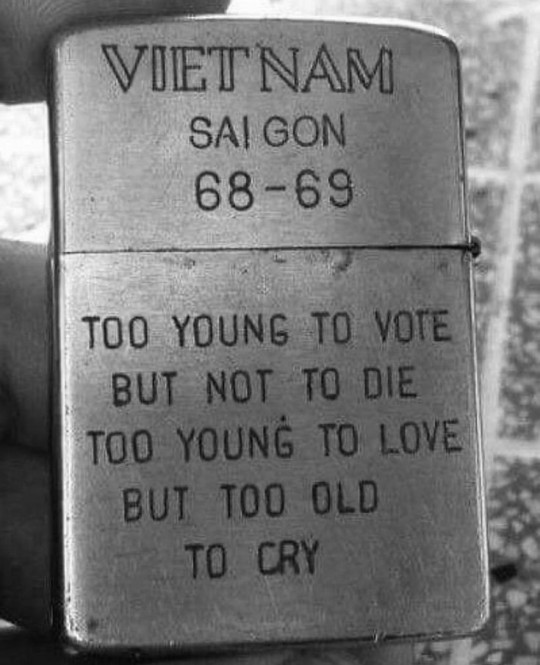
Good vs Evil. Yes, sometimes the army are the heroes. But in reality, war is a grey area. No army in the world is wholly bad or innocent. Every single army on earth has committed war crimes and every army has had to make decisions which some would find morally reprehensible. The point is that painting an army as the good guys or the bad guys in your narrative can’t work because it isn’t realistic. You can of course highlight these issues by the actions of a few soldiers while still retaining the antagonists and the heroes. You can of course pit the ideals of both sides in a war together, to firmly push your reader toward the good guys vs the bad guys. But the reality is a simple one: all armies kill, all armies steal and all armies destroy.
Civilian vs Soldier: The Reality Civilians suffer at the hands of their own army as well as the enemy. Civilians often had to deal with soldiers taking their crops, livestock and overtaking their homes in searches for food, shelter and resources. Enemy civilians would also put up with pillaging, looting and in some cases death, assault and sexual abuse. It is of course against protocol to harm civilians but things do happen in theatres of war.
The Army vs the Soldier
While the army expects a lot out of the soldier as an induvial, the army can often fall short of their duties to that soldier. This can be unintentional, for example supplies can get lost or stolen. But there are instances where soldiers and their needs are sacrificed for the greater good. They maybe passed over for supplies or reinforcements for another unit. They may be placed in difficult circumstances without any hope of relief. They may not have the equipment needed to fight their battle or stay alive. Sometimes, armies even shot their own soldiers for insubordination, ex. In WW1, many soldiers on all sides were shot by their own for “cowardice” – this may have been the case, but some cases involved soldiers who were suffering from PTSD.
Choice vs Obligation vs Threat Why do soldiers fight? What makes somebody join the army? Sometimes it is the search of opportunity, of a place, of rank and a purpose. But sometimes, going to war isn’t the choice of the soldier. Drafts and conscription make military service compulsory for certain age groups and genders. In peacetime, soldiers are enlisted voluntarily in most armies while some countries have compulsory service time even in times of peace. In some wars, criminals in prison were offered the chance to serve in the war as penance for their crimes. There are of course instances when one is threatened or forced into an armed force.
The Effects of War on the Soldier War changes people. The things soldiers see and have to do within war and training will inevitably change them as people. Sometimes, the change is positive, the army has been named by many people as the thing that straightened them out and have them structure. The army sometimes allows soldiers to travel and gain access to opportunities and education that they may never have had access to before. But undeniably, war has negatives effects on soldiers and civilians. Soldiers may suffer from PTSD, depression, suicidal thoughts and feel a disconnect between themselves and their old lives. Soldiers often find it hard to return to their life after the war, especially in radically different settings with people who don’t understand what they have been through. This can lead to substance abuse issues, alcoholism, problems with the law and troubles within relationships among family and romantic partners. Soldiers of course can get injuries while in war or even in training. Loss of limbs, damage to the brain and other organs, broken bones, burns, shrapnel injuries and of course gunshot wounds are all common. Soldiers often get ill while in the field, such illnesses including typhoid, hypothermia, trench foot, dysentery, malaria, pneumonia etc. These are caused by the close living quarters and the often-sub-standard living conditions. Soldiers would often be at risk for pests such as lice and fleas because of their living conditions. Soldiers may often face problems with nutrition, might suffer from dehydration and starvation especially if supplies are scarce.
The Geneva Convention
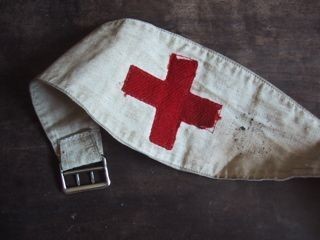
Your world may not include the Geneva Convention, may pre-date the Geneva Convention or Geneva may not be a place within your WIP, but I include this here so you might have a fair idea about the “rules” of modern warfare. This is just a brief version.
Medical personnel are not to be specifically targeted in operations.
Medical facilities and equipment is not be targeted in operations
Any wounded soldiers or civilians are to be treated, despite allegiance.
Prisoners cannot be tortured or harmed in any way
Prisoners must be fed, well-kept and treated for any injury
Prisoners are not under obligation to tell their captors anything but their name, rank and other personal information – this is so they can be recorded and all information must be recorded and sent to the captured soldier's officers
Prisoners must be allowed to communicate with family and friends.
Prisoners have the right to receive any packages or mail.
Prisoners have the right to access the services of the Red Cross, who cannot be prevented from visiting and inspecting them
Prisoners who are seriously wounded or ill must be released
Any religious figures are to be captured and released as soon as possible
Soldiers cannot take hostages, they cannot pillage, they cannot take slaves.
Soldiers must abstain from humiliating and degrading any captured soldiers or civilians.
Reprisals against civilians and other soldiers are forbidden.
Group punishment is not permitted (Yes, that one teacher did break the Geneva Convention)
Prisoners can be tried by their captors, but they are entitled to a fair trial.
All POWs shall be released at the end of conflict
At sea, hospital ships cannot engage in war.
Any shipwrecked crew on a ship must be rescued despite allegiance.
Children, pregnant women, mothers with very young children, the elderly, the sick and wounded who are imprisoned for a long time, must be released as soon as possible.
Surrendering soldiers, civilians and civilians who participate in acts against an army cannot be harmed and must be taken alive.
The use of weapons to cause suffering, say a non-fatal wound or mutilation is prohibited.
It outlaws indiscriminate attacks on civilian populations and destruction of food, water and other materials needed for survival.
The destruction of resources that could affect the population such as poisoning the water supply is not permitted.
Certain infrastructure cannot be destroyed or targeted. This includes dams and nuclear stations. Cultural landmarks and religious landmarks are also to be spared.
Recruitment of children into the armed forces is prohibited.
The use of certain symbols such as the Red Cross in order to deceive the enemy is prohibited.
Civilians who do not take part in combat are to be treated respectfully. They are protected from violence from soldiers.
Children and vulnerable people are top-priority to be evacuated to safe havens as soon as possible. All efforts will be made to reunite them with family.
The targeting of civilians and anything that sustains their well-being such as food sources is prohibited.
Military Terminology

This is by no means a full list but these are the most commonly used terms.
Boots on the ground – to physically be in a location
Inspection - a superior officer takes formal note of appearance, condition of living area and weapons.
Drill – a practise in various manoeuvres, marches, procedures
Pass - leave to have some free time, sometimes off base.
Off base - away from military barracks
Tour of duty – the period of time which an action is completed in.
Civvies – Civilian clothing
Detail - a specific task undertaken by a unit or soldier
Mess hall - dining facility
Latrine - toilet
Latrine duty - digging a Latrine pit or cleaning the facility
Flanking - Attacking an enemy formation from the sides
Envelopment - surrounding the enemy from multiple sides
Penetration - breaking past the enemy’s front lines
Reconnaissance by Fire - Firing at positions that may be occupied by the enemy to provoke them into returning fire (so you know where they are)
Ambush - Attacking from concealed position
Retreat - go back the way you came (DO NOT COLLECT €200)
Feigned Retreat - Pretending to retreat and then attacking the enemy
Perimeter - boundary of fortified area
No Man's Land - the space between front lines
Contact line - where opposing sides meet to fight
Supply line - the route the supplies get from base to the field.
Front line - the furthest out troops are place on the line, this is where the most intense fighting happens
Barracks - sleeping quarters in base
Foxhole - a dug position in the ground
Combatant: A person actively engaged in fighting.
Non-combatant: A person not engaged in a conflict.
Civilian: Somebody who is not a member of any military unit.
Militia: Civilians who are armed and trained to fight.
Guerrilla: Small, independent units that takes up arms against an armed force. Very effective.
Saboteur: Somebody who deliberately sabotages equipment and supplies.
Spy: Somebody who gathers information about the enemy.
Operative: A soldier who carries out a specific task.
Mercenary: A soldier for hire
Contractor: A person or a group of people who are hired to provide advice, services and additional support to the army and their operations.
Conscription: Compulsory enlistment.
Enlistment: Joining the army.
Exercise: Simulated military practises or manoeuvres for training.
War game: Simulated war fare for training.
Mission: The operation.
Objective/Target: The objective of the mission.
Campaign: Multiple operations.
Down Range – being within the combat zone
In-Country – being within in a war zone
Quarters – can mean one of two things either it is a medic's order to stay in the camp or barracks or military family housing.
Squared away - to fix
Siege: Where one army sits outside a fortified town or position and tries to claim it.
Convoy: A large group of vehicles such as trucks, jeeps and tanks travel together. It is harder to target more than one vehicle.
Escort: More vehicles and soldiers who accompany a convoy.
Strike/Assault: Attacking the enemy.
Counterattack: An attack to respond to a previous attack
Rear: Behind the formation
Front: Before the formation.
Line: The formation.
Column: The formation in a line.
Formation: The arrangement of soldiers
Deployment: Soldiers moving to a position.
Redeployment: Sending soldiers to another position.
Mobilization: Readying soldiers, their supplies and equipment for deployment.
Demobilization: The disbanding of soldiers after an operation.
Reserve: Soldiers and equipment held back. This is usually to conserve soldiers and supplies for emergencies or shortages.
Reinforcement: More soldiers and equipment sent to the soldiers on the line to bulster their efforts.
Casualty: Death, injury, missing.
KIA: Killed in action.
MIA: Missing in action.
Surrender: Yielding to the enemy.
Ceasefire: An agreement to cease hostilities.
Armistice: A temporary stay of fighting.
Battalion: A large unit of soldiers. Usually in the range of 300 upwards to 800 or so soldiers.
Regiment: A unit made up of several battalions.
Division: A military unit (10,000-20,000)
Corps: A unit, (20,000-50,000)
Theatre: The place where military operations are undertaken.
Engagement: A battle or a conflict with the enemy.
Manoeuvre: Planned movement.
Logistics: The planning of moving soldiers and equipment to soldiers.
Ordnance: Supplies.
Artillery: Large-calibre firearms.
Infantry: Soldiers who fight on foot.
Reconnaissance: Gaining information about the enemy and their positions.
Tactical: Planning and implementation the military strategies.
Strategic: Planning and directing strategies.
Operational: The following through of military operations.
Command/Control: The authority to direct military operations.
Communications: The passing of information between units, base and HQ.
HQ: Head Quarters
Intelligence: Information about the enemy
Counterintelligence: Preventing the enemy from gaining information about the army, such as the famous Operation Mincemeat.
Camouflage: The use of material or paint to hide oneself from one’s enemy.
Fortification: Defensive structure
Entrenchment: Digging trenches or foxholes.
Garrison: Military station.
Bivouac: A temporary camp, but this camp is without no cover. This means no tents or shelter.
Dog Tags - Metal identification tags worn by soldiers
Patrol: Soldiers will leave camp or their positions to walk within their boundaries
Raid: Attacking on the enemy’s position.
Zero Dark Thirty - Early as fuck, from 0100 hrs to sunrise.
Copy - I understand
Unit - can mean any organisation in the military
Platoon - a section within a company made up of 30-50 soldiers
Contact - Engaging with the enemy
Tactically Acquired - Stolen
Squad - a smaller faction of a company
CO - Commanding officer
XO - second in command
Hang Fire - wait for the next set of orders
Demilitarized Zone - a place that is no go for military equipment, weapons and soldiers
AWOL - Absent without leave
PT - Physical Training
Skivvies - ones undergarments
Active Duty - Full time duty in active service
As You Were - Go back doing whatever you were doing or standing how you were standing
BOLO - Be on the Lookout
CP - checkpoint
Bunk - Bed
Ruck - backpack
Smoked - physical punishment for an infraction.
Zone of Action - a specific part of the tactical area.
About face - a manoeuvre where a someone or a group turn to face the opposite direction.
POW - Prisoner of War
POW Camp - facility to house POWs
Halt - stop marching/moving
Present Arms - salute, typically by presenting one's weapon or raising the right hand to the forehead
Parade Rest - stand with one's feet shoulder-width apart, hands folded behind their back
Fall out - break formation
Fall in - get into formation
At ease - stand in a more relaxed position
Attention - stand upright, heels together, back straight, shoulders back, arms at the sides.
Books and Media I recommend
Band of Brothers (HBO, Limited Series)
Beyond Band of Brothers by Dick Winters
Band of Brothers by Stephen Ambrose
M*A*S*H
The Unwomanly Face of War by Svetlana Alexievich
Lady Death: The Memoirs of Stalin's Sniper by Lyudmila Pavlichenko
The Six Triple Eight
Some Desperate Glory: The First World War the Poets Knew by Max Egremont
Poems of the Great War 1914-18
Poems of the Great War by Wilfred Owen
Poems of the Great War by Siegfried Sassoon
Poems of the Great War by Robert Graves
Poems of the Great War by Rupert Brooke
Poems of the Great War by David Jones
SAS Rogue Heroes (BBC)
SAS: Rogue Heroes: The Authorised Wartime History by Ben MacIntyre
Saving Private Ryan
All Quiet on the Western Front by Erich Maria Remarque
All Quiet on the Western Front
Private Peaceful by Michael Mupurgo
War Horse by Michael Mupurgo
Road to War by Valerie Wilding
The Trenches by Jim Elderidge
D-Day by Byran Perett
D-Day by Ben MacIntyre
Japan's Pacific War by Peter Williams
Operation Mincemeat by Ben MacIntyre
War Nurse by Sue Reid
Helmet for my Pillow by Robert Leckie
With the Old Breed by Eugene B Sledge
Hacksaw Ridge
D-Day Through German Eyes: How the Wehrmacht Lost France by Jonathan Trigg
Platoon
Britain’s Secret Defences: Civilian saboteurs, spies and assassins during the Second World War by Andrew Chatterton
If You're Reading This...: Last Letters from the Front Line by Sian Price
A Bridge Too Far
Firepower in Limited War by Robert Scales
Storm of Steel by Ernst Jünger
Dunkirk
The Things They Cannot Say: Stories Soldiers Won't Tell You About What They've Seen, Done or Failed to Do in War by Kevin Sites
1917
On Artillery by Bruce Gudmundsson
Letters From Iwo Jima
Das Boot
The Longest Day
Come and See
War Horse
#Yes this is long#I am not sorry you asked for this post and I delivered#I shall rest now#and yes I am aware there are some gaps in my military knowledge but I did my best#writing#writeblr#writing resources#writing reference#ask answered#writer#writing advice#spilled words#writer's problems#writer's life#Fantasy guide#fantasy guide to the army#the army#writer's guide#writer's help#writing resource#writer reference#writer resource#writing hep#writing guide#writers#creative writing#wtwcommunity
546 notes
·
View notes
Text
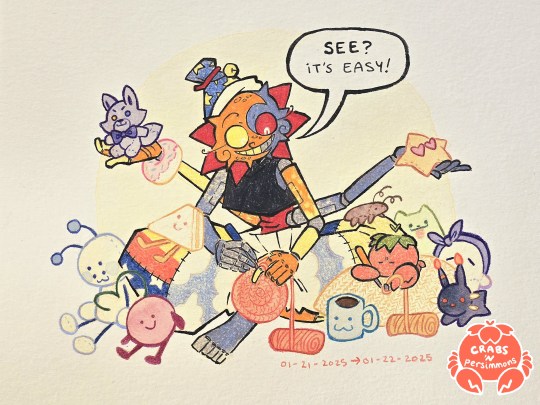
Clip: well maybe it would be easier if you didn't have big meaty claws! crabs: well these claws are only good for attracting mates* *cute robots
so while i was struggling with my creative block, i was trying out new hobbies to fill the void and i decided to try out crochet
i
have not yet learned to enjoy crochet
but hey, Clip's here to be a... support? (show off?) at least he's surrounded me with amigurumi plushies of dear friends. see if you can recognize them all!
i'll put the tags under the cut
from the left to right, top to bottom:
@linafoxoficial - purple fox sona plushie
@inkydoughnut - crochet donut
@itsmuffiiee - sona plushie
@cacaocheri - cherry sona plushie
@eggcromancer - egg sandwich sona plushie
@normal-about-the-dca - beetle sona plushie
@scarredlove - blue mug plushie
@starriegalaxy - star sona plushie
@divinit3a - Pomeranian plushie
@enduu115 - sona plushie
@random-tail - kie kie plushie
#fnaf eclipse#fnaf dca#dca fandom#Clip New Do Same You AU#crab art#traditional art#bright colours#i am#so thankful i have drawing as a hobby#even writing#i just have not reached the stage where crocheting is fun or rewarding yet#i bought a beginner set that walks you through crocheting a little pouch#and i am still at the stage of learning all the basic knots#thankfully my creative block is easing off#i'm able to draw and write again#so maybe i will return to crochet some other time
417 notes
·
View notes
Text
Merlin: I'm not ignoring you, I'm exercising my right
Arthur: I am the king! I say what your rights are
Merlin: Yes, and you have declared that I am free
Arthur: Free to be yourself!
Merlin: Exactly and myself's attention is freely directed to another part that is not you at this moment.
#Arthur just wants some quality time with his hubby#i mean#his court warlock#bbc merlin#merthur#arthur pendragon#merlin emrys#merlin#ao3#merlin x arthur#incorrect quotes#reccs#fanfiction#merlin incorrect quotes#merlin tv#tvshows#tvseries#2000's#multifandom account#blog fandom#fangirl#the adventures of merlin#king arthur#court sorcerer merlin#writeblr#fic writers#writer's block#creative writing#i’m bad at tagging#fantasy
533 notes
·
View notes
Text















THE HEART KILLERS (2024) + tropes prior art by @hurlumerlu
+ bonus:

#the heart killers#thkedit#kantbison#fadelstyle#first kanaphan#khaotung thanawat#joong archen#dunk natachai#jojo tichakorn#firstkhao#joongdunk#may.gifs#some creative interpretation of the intent of the phrases yes but i Really couldn't resist 'get caught at the end'#others i was tempted by but decided against adding to the actual post (alleyway sex. mpreg. watersports. unresolved trauma ver. 2/3/4)#the confession is more of a subversion admittedly but i would argue it doesn't happen properly until the beach in ep8#thought about leaving out daddy kink bc i didn't want to subtitle and also sigh. but actually i think you can read their lips just fine#now. noting for the record i have as many as several ideological disagreements with the framing in the source#(e.g. what does 'messed up' even mean when it comes to choices in reading fiction? yes including porn. kill the cop inside your mind etc)#nevertheless. i have nothing to say in my defense save that the artistic spirit is a fickle beast. also i miss them all very much <3#thanks merlu for the concept and for bison writing his own kant-murdering fanfic (darling!!)#can you tell how very fond i am of this show.
236 notes
·
View notes
Text

Peace 💚💙
#destiel#dean Winchester#castiel#spnfanart#wiggleart#this is going to be my inner mood for the foreseeable future btw#mellow and chill and colors and destiel#lots of destiel#EMBRACE YOUR WHIMSY PEOPLE#BE CREATIVE#anyway lol#I’m writing down some creative projects I wanna try!
282 notes
·
View notes
Text
"Wah this section of worldbuilding I'm doing is so minute and kinda pointless to the larger scheme of things, hurr durr I'm just focusing on some whatever part when I have actual story and plot to figure out-" WHO CARES. YOU ARE THE GOD OF YOUR UNIVERSE. HAVE FUN CREATING IT.
#Tired of seeing self deprecating writer memes about how silly it is to focus on some seemingly pointless details#Bc it caught your interest#JUST DO THAT THEN. IF YOU WANT. ENJOY IT. THIS IS NOT A PRODUCT. YOU ARE A CREATIVE PERSON SO DO CREATIVE. THAT IS ENOUGH#Writblr#Writing#Worldbuilding#Story building#artist inspiration#writer inspo#writing memes#writers advice#Writer#Creatives on Tumblr
1K notes
·
View notes
Text
NOT built for english class. editing fanfic instead
#and yes i am writing some despite popular opinion#memes ✦#writing#fic writing#fanfic writing#fanfic#fanfic wip#ao3 writer#fanfic writer#fanfiction#ao3#author#creative writing#fiction#ao3 fanfic#ao3 fic#writers on tumblr#writeblr#writers of tumblr#writerblr#writingblr#fanficblr#ficblr
132 notes
·
View notes
Text
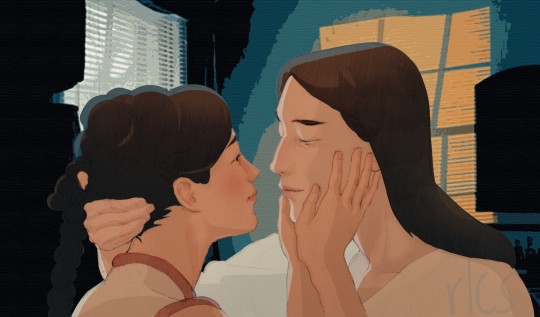
the whole world in my hands
#nejiten#neji hyuga#tenten#team gai#naruto#my art#coloured an older drawing and tried some new things#it was so fun to make this!!!!#hopefully tomorrow i'll get started on something special#all the love here really kicked my creative juices up a notch so thanks to everyone who appreciated my humble drawings!!#and big love to char whose writing has been such an inspiration for so long!! so surreal to have you notice my art ♡♡♡
267 notes
·
View notes
Text
head in hands, on my freaking knees. the running theme of dopplegangers and other selves in protocol both textually and metatextually is going to send me to an early grave. like. beyond it just being cool as hell, its such an interesting way to take a sequel/side-quel/whatever of a story where even the most minor character has a whole fanbase behind them because yes! we’re all waiting to hear from our faves after so long and here they are! but not really. the voice is the same but the person is not, at what point do you stop being you and start being someone else? is that you?
and ! ☝️ id argue that sam and alice as characters play into this theme because they are both completely different from jon and martin but also exactly the same (sam being very friendly and personable in a way that hides his obsessiveness, alice being loud and sarcastic to hide her loneliness/jealous streak) (also erm. theyre actually canonically south asian and trans this time. win.) (we also get this with gwen (literally a bouchard) and celia (literally from tma)) the whole team is meant to ring the archives alarm without any fire. similar but not the same yknow?
idk man playing with expectations and familiarity like this is so cool to me. like yes ill trust the voice in my computer telling me to dig myself deeper! it sounds like my friend jon!
#text!#magprotocol#i need a tag for meta actually sorry everybody i love writing it#spooky’s creative writing degree#thinks about ‘some of him’ and dies one thousand deaths#tl;dr the people need a jmart/samalice queen out session#and if i said this lays the groundwork for sarchivist next season ? ☝️
328 notes
·
View notes
Text


Bowman (art from 2021)
#inver#i pivoted hard back into writing being my main form of creativity rn so here is some stuff from my archive of older drawings#he looks very young here lmao#this is the ranger from said the black horse [book]. he is also my funny dog man#character design
2K notes
·
View notes